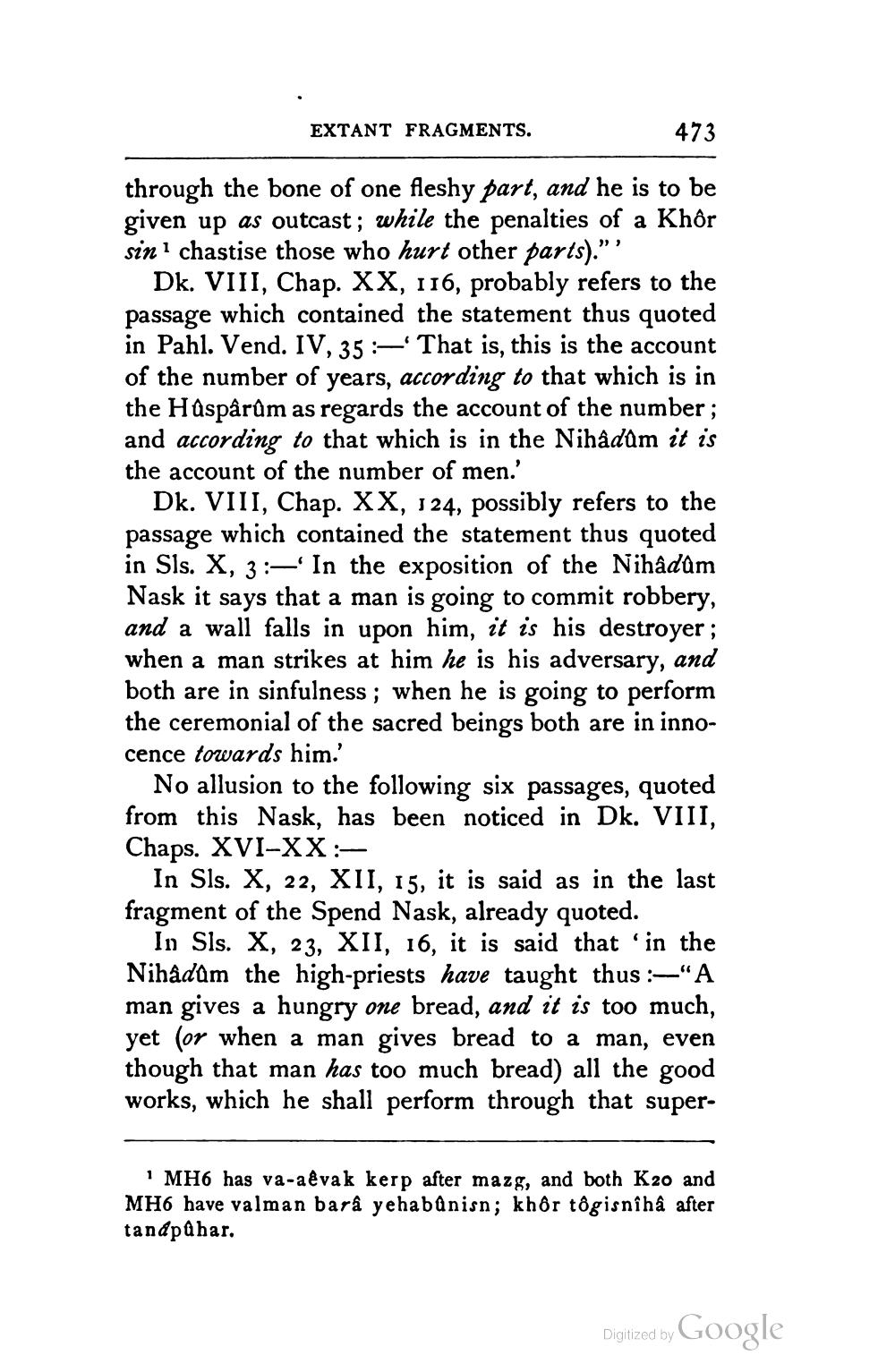________________
EXTANT FRAGMENTS.
473
through the bone of one fleshy part, and he is to be given up as outcast; while the penalties of a Khôr sin 1 chastise those who hurt other parts).”
Dk. VIII, Chap. XX, 116, probably refers to the passage which contained the statement thus quoted in Pahl. Vend. IV, 35:- That is, this is the account of the number of years, according to that which is in the Haspârům as regards the account of the number ; and according to that which is in the Nihâdum it is the account of the number of men.'
Dk. VIII, Chap. XX, 124, possibly refers to the passage which contained the statement thus quoted in Sls. X, 3: In the exposition of the Nihâdum Nask it says that a man is going to commit robbery, and a wall falls in upon him, it is his destroyer ; when a man strikes at him he is his adversary, and both are in sinfulness; when he is going to perform the ceremonial of the sacred beings both are in innocence towards him.'
No allusion to the following six passages, quoted from this Nask, has been noticed in Dk. VIII, Chaps. XVI-XX :
In Sls. X, 22, XII, 15, it is said as in the last fragment of the Spend Nask, already quoted.
In Sls. X, 23, XII, 16, it is said that 'in the Nihâdam the high-priests have taught thus :—“A man gives a hungry one bread, and it is too much, yet (or when a man gives bread to a man, even though that man has too much bread) all the good works, which he shall perform through that super
1 MH6 has va-a êvak kerp after mazg, and both K20 and MH6 have valman bara yehabûnisn; khôr tôgisnihâ after tandpů har.
Digitized by Google




